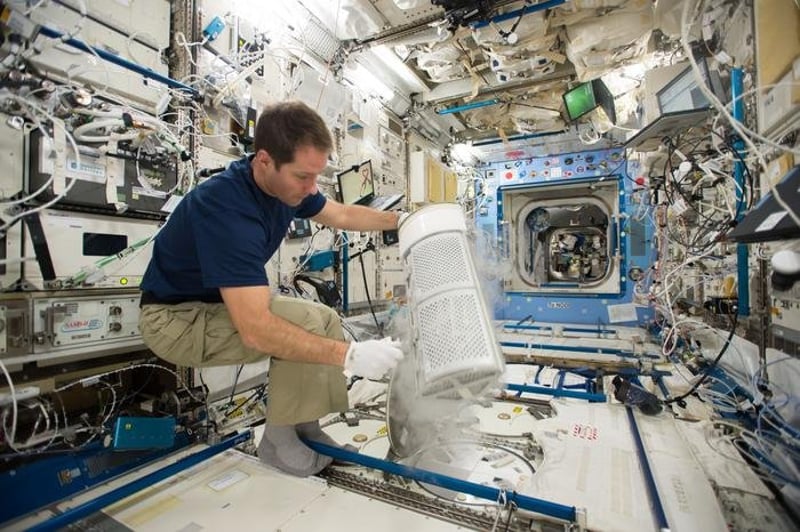Patient Resources
Get Healthy!
Space Travel Takes Toll on Astronauts' Blood, Bone
- August 23, 2023
- Cara Murez
- HealthDay Reporter

When astronauts travel to space, the experience depletes their red blood cells and bone, according to a new study.
Fortunately, it appears their bodies can eventually replenish them after they've returned to Earth, thanks to fat stored in the bone marrow.
"We found that astronauts had significantly less fat in their bone marrow about a month after returning to Earth,"said senior study author Dr. Guy Trudel, a rehabilitation physician and researcher at The Ottawa Hospital and professor at the University of Ottawa in Canada.
"We think the body is using this fat to help replace red blood cells and rebuild bone that has been lost during space travel,"he said in a hospital news release.
The new research builds on Trudel's earlier work, which found that astronauts' bodies destroyed 54% more red blood cells during space travel than they normally would on Earth. It's known as "space anemia."
The research is part of MARROW, which is an experiment looking at bone marrow health and blood production in space, with funding from the Canadian Space Agency.
"Thankfully, anemia isn't a problem in space when your body is weightless, but when landing on Earth and potentially on other planets or moons with gravity, anemia would affect energy, endurance, and strength and could threaten mission objectives,"Trudel said. "If we can find out exactly what's controlling this anemia, we might be able to improve prevention and treatment."
For the study, the researchers did MRI scans of 14 astronauts' bone marrow at multiple time points before and after a six-month mission at the International Space Station.
The investigators found a 4.2% decrease in bone marrow fat about a month after returning to Earth. This gradually returned to normal levels and was closely associated with increased production of red blood cells and restoration of bone.
"Since red blood cells are made in the bone marrow and bone cells surround the bone marrow, it makes sense that the body would use up the local bone marrow fat as a source of energy to fuel red blood cell and bone production,"Trudel said. "We look forward to investigating this further in various clinical conditions on Earth."
Younger astronauts may have an increased ability to harness the energy from bone marrow fat, the authors noted. Female astronauts' bone marrow fat increased more than expected after a year.
In his work as a rehabilitation physician, most of Trudel's patients are anemic. They have lost muscle and bone mass after a long illness and limited mobility. Anemia makes it more difficult for them to exercise and recover muscle and bone mass.
"I'm hopeful that this research will help people recover from immobility on Earth as well as in space,"Trudel said. "Our research could also shed light on diseases such as osteoporosis, metabolic syndrome, aging and cancer, which are associated with increases in bone marrow fat."
Trudel was honored recently with the 2023 Compelling Results Award for Human Health in Space for his research on space anemia, jointly presented by NASA, the Center for the Advancement of Science in Space and the American Astronautical Society.
Funding for the study came from several sources, including the Canadian Space Agency, as well as Dr. Scott Smith and the NASA Biochemical Profile Protocol.
The study findings were published online recently in Nature Communications.
More information
The U.S. National Institutes of Health has more on anemia.
SOURCE: The Ottawa Hospital, news release, Aug. 21, 2023
